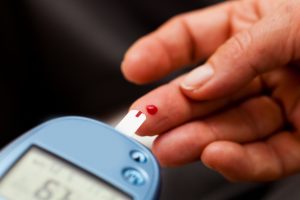
High blood sugar – even below diabetes levels – may boost the risk of dementia.
A new study from University College London in the UK found that “prediabetes” – a condition where blood sugar levels are high but not as high as full-blown diabetes – may threaten brain health. The research was published in Diabetes, Obesity, and Metabolism.
Looking at data from the UK Biobank on a half-million people between ages 40 and 69, researchers found people with prediabetes had a 42 percent higher risk of mental decline over four years than people with normal blood sugar.
They were 54 percent more likely to develop vascular dementia, a common type of dementia resulting from reduced blood flow to the brain, over eight years. Researchers found no association with Alzheimer’s risk.
When the team examined people with full-blown type-2 diabetes, they were three times more likely to develop vascular dementia and more likely to get Alzheimer’s than people who had normal blood sugar.
It’s easy to compartmentalize health and overlook how interconnected your entire body is. But the blood sugar to brain connection is quite strong.
When blood sugar is high, it can lead to inflammation and arterial blockages over time. This can lead to reduced blood flow to the brain, which is associated with dementia.
You might be able to limit the risk for dementia by regulating blood sugar levels. A diet low in processed and refined foods, including sugary snacks and beverages, is the best place to start. Regular exercise can help too.
When you can keep blood sugar at safe levels, you can prevent the onset of prediabetes and full-blown diabetes, potentially protecting your brain in the process.